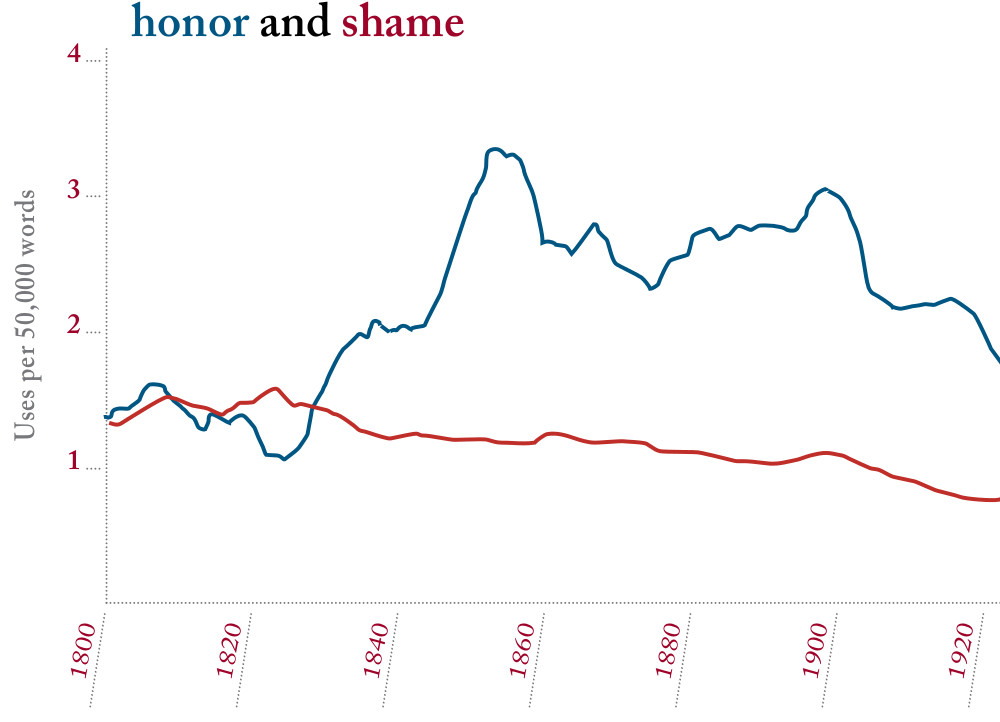
Mirandor’s Master, the Innkeeper, in the Draaikooi, by Caspar Luyken, 1695. Rijksmuseum.
affront: “Outrage; act of contempt, in a more general sense.”—Samuel Johnson, Dict. of the Eng. Lang.
branks: A scold’s bridle; an instrument used to punish scolds (q.v.). Of unknown origin; it has been compared with Middle English bernak, brake; also with German pranger, pillory, and pranger, a barnacle for a horse.
brazen: Hardened in effrontery; shameless. From Old English braes, brass (of unknown origin).
calumny: False and malicious misrepresentation of words or actions of others calculated to injure reputation. “Be thou as chaste as ice, as pure as snow, / Thou shalt not scape calumny.”—Hamlet, 1603
contumely: Contemptuous treatment to inflict humiliation; insolent reproach or abuse; insulting or offensively contemptuous treatment; scornful rudeness. “Contumely is the disgracing of another for his own pastime.”—Thomas Hobbes, 1637
cutty stool: (Scottish) The stool of repentance. A low seat in a church where offenders against chastity, or other delinquents, were forced to sit during service and receive a public rebuke from the minister.
dainty: (n.) Estimation, honor, favor, esteem, regard, affection, love.
diū liăn: 丢脸 (Mandarin) Lit. “to lose face,” to be humiliated. Whence the English idiom “to lose face.”
draaikooi: (Dutch) Lit. “turning cage.” An iron cage used to punish and publicly humiliate adulteresses.
embarrass: To make a person feel awkward or self-conscious. From Portuguese em-, to put into, and baraço, cord (early 12th cent. as baraza). Apparently originally with reference to animals being restrained by cord or leash; further etymology is uncertain.
épater le bourgeois: (French) To shock the middle classes.
etiquette: A code of polite behavior. From French étiquette, a note attached to an object detailing its contents. Apparently derived from the strict rules of protocol and ceremony followed by the Spanish royal court in the 16th cent. that were written on an official list.
gossip: One who contracts spiritual affinity with another by acting as sponsor at a baptism. From Old English godsibb, from god and sib, akin, related (as in sibling).
guilt culture: A society that emphasizes punishment and forgiveness to restore moral order. (A “shame culture” stresses self-denial and humility to restore such order.) Concept popularized by anthropologist Ruth Benedict, 1946.
hazukashii: 恥ずかしい (Japanese) Shy, ashamed, shameful. Often used in reference to a person receiving excessive public praise, and thus standing out from other people.
indecent: Offending against recognized standards of propriety. “I have something within me which cannot bear the shock of the least indecent insinuation.”—Laurence Sterne, 1768
infamy: Scandalous repute; public reproach, shame, or disgrace. “Ye are taken up in the lips of talkers, and are an infamy of the people.”—Book of Ezekiel, King James Version, 1611
last shame, in the: To be in prison.
mortify: To cause to feel humiliated; to cause a person embarrassment. From Middle French mortifier (various senses: 1552, to become gangrenous, decompose; 1588, in viandes mortifiés as a culinary term; 1594, to bruise, wound; 1636, to embarrass). From Latin mortificare, to deprive of life.
oop: (internet slang) A halfhearted or indifferent apology.

ostracon
A potsherd. In ancient Athens, the decision to banish or exile a person from the city was made by casting a vote on a shard of pottery. Whence ostracism. “Ostracism was not the punishment of any criminal act,” wrote Plutarch, “but was speciously said to be the mere depression and humiliation of excessive greatness and power.”
outrage: “Any disagreeable act, considered from the viewpoint of the victim of it. A denial of immunity.”—Ambrose Bierce, Devil’s Dictionary

pearl clutching
To exhibit more shock than one actually feels, in order to emphasize the immorality of an action or individual.
pillory: A device for punishment consisting of a wooden framework mounted on a post, with rings for trapping head and hands, in which an offender was subjected to public ridicule. In Britain the punishment of pillory was abolished, except for perjury, in 1816, and totally in 1837. It was not abolished in the U.S. until 1905.
reproach: To upbraid, reprove, rebuke. “I have been a very great rogue for your sake, and you reproach me with it.”—William Congreve, 1693
risqué: Slightly indecent and liable to shock, esp. by being sexually suggestive. From French risqué, fraught with risk.
scandal: A grossly discreditable circumstance or event; something that hinders reception of faith or obedience to divine law. From Greek skandálon, trap or snare; hence skandálēthron, a mousetrap. See Julius Pollux’s Onomasticon (2nd cent.): “And the carpenter may also make mousetraps, whose upright and open part is called a pattalion, and that fastened to a rope a skandálēthron.”
scandal bag: (Jamaican slang) A single-use black plastic bag that conceals the contents within.
scandalum magnatum: (Latin) The utterance or publication of a malicious report against a person holding a position of dignity.
scold: Apparently from Old Norse skáld, a poet; the probability of the sense “lampooner” as an intermediate stage seems indicated by the fact that skáldskapr, poetry, has in Icelandic law the specific sense of libel in verse form. (See branks.)
shame: A painful emotion arising from the consciousness of something dishonoring, ridiculous, or indecorous in one’s conduct or circumstances. Also, the privy members: “And with loving pencil you shaded my eyes, my bosom, and my shame.”—James Joyce, 1922
schande: שאַנדע (Yiddish) Shame, disgrace, scandal.
shock: To wound the feelings of; to offend, displease. In later use, to affect with a painful feeling of intense aversion or disapproval; to scandalize, horrify. From French choque, tree stump; from Old French choper, to stumble, knock against.
seppuku: (Japanese) Suicide by disembowelment, as formerly practiced by samurai in circumstances of disgrace. From colloquial pronunciation of setsu fuku; from Chinese qiē, to cut with a sword or knife, and fù, belly. Also called happy dispatch.
skandalistes: (ancient Greek) An acrobat who performs on a trapeze, a funambulist, a tightrope walker. Possibly from the use of a rope in a snare or trap. (See scandal.)
slur: To disparage, depreciate, calumniate, asperse. Of obscure origin; compare Dutch sloor, sloerie, a sluttish woman.
smirch: To cast discredit or disgrace upon a person; to bring into ill repute. Apparently from Old French esmorcher, to torment, torture (as by the application of hot metal).
struggle session: Public humiliation used by the Communist Party of China against class enemies, esp. during the Cultural Revolution.
succès de scandale: Success due to notoriety or scandalous character.
sully: To pollute, defile; apparently, from French souiller, to soil, tarnish. “The purity of his virtue was sullied by excessive vanity.”—Edward Gibbon, 1781
tattler: An idle talker, chatterer, gossip. Compare Low German täteln, to gabble, cackle (whence tatelgos, gabbling goose).
tattletale: A sealed tachograph used on trucks, buses, and locomotives to record speed and time of day, thus producing a history of driving hours and stops.
tumult: A great disturbance or agitation of mind or feeling; from Latin tumultus, tumere, to swell.
wanton: A lawless or violent action; also, rude, ill-mannered.

Explore Scandal, the Spring 2020 issue of Lapham’s Quarterly.